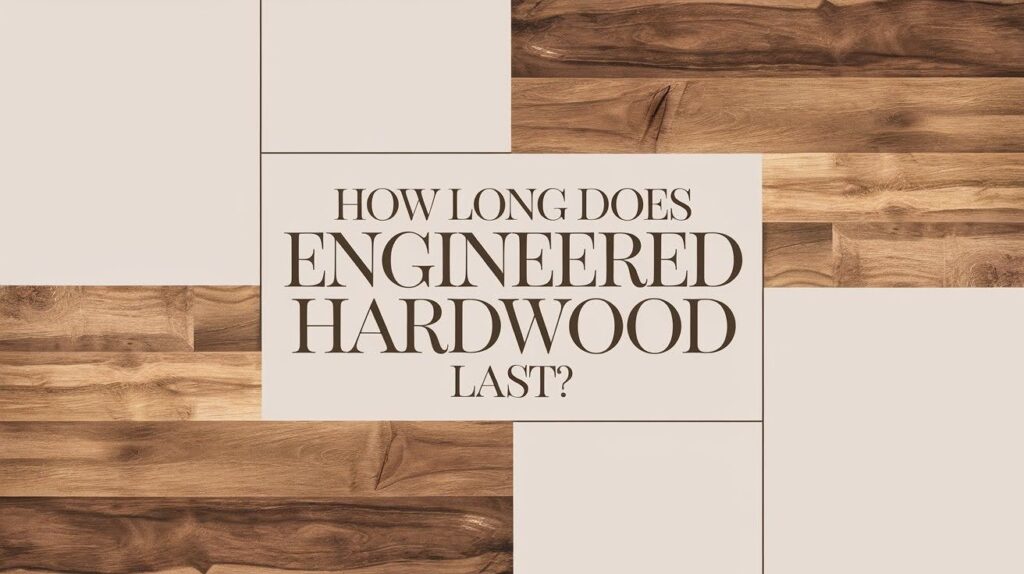Choosing engineered hardwood flooring feels overwhelming when you don’t know how long it’ll last. I understand that confusion completely.
You want a straight answer about lifespan, durability, and value. This guide gives you exactly that. I’ve worked with hundreds of homeowners making this decision. My experience helps you avoid costly mistakes.
Here’s what you’ll learn: how long engineered hardwood actually lasts, what affects its lifespan, refinishing options, and smart maintenance tips.
You’ll also see detailed comparisons with other flooring types. Plus warning signs that mean replacement time.
The key point? Engineered hardwood can last 20-80 years with proper choices. Let me show you how to maximize your investment.
What Is Engineered Hardwood and How Is It Made?
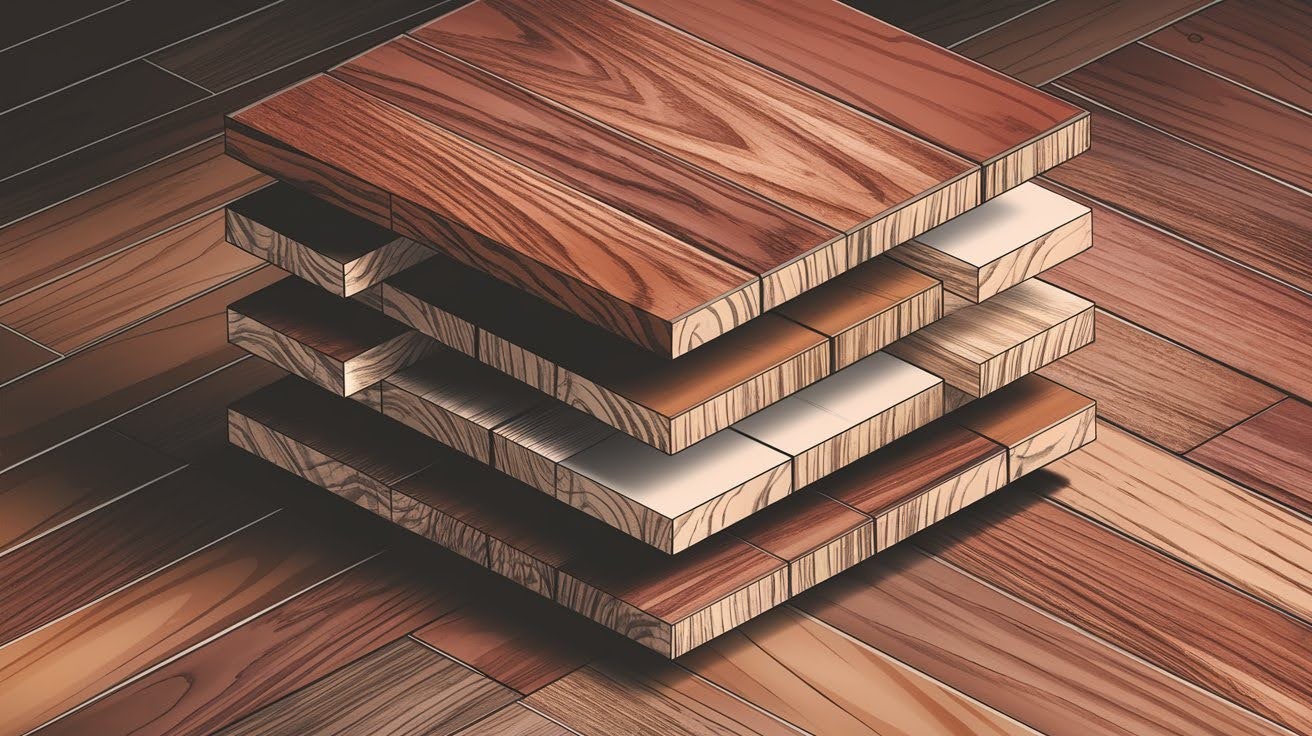
Think of engineered hardwood as layers of wood stacked together like a sandwich. The top layer is real hardwood. This is what you see and walk on every day. We call this the wear layer.
Below that are multiple layers of plywood. These layers get glued together with wood grain running in different directions.
This cross-grain construction makes engineered hardwood more stable than solid hardwood. It won’t expand and contract as much when temperatures change.
The wear layer thickness matters a lot for how long your floors last. I’ll explain why as we go.
So, How Long Does Engineered Hardwood Last?
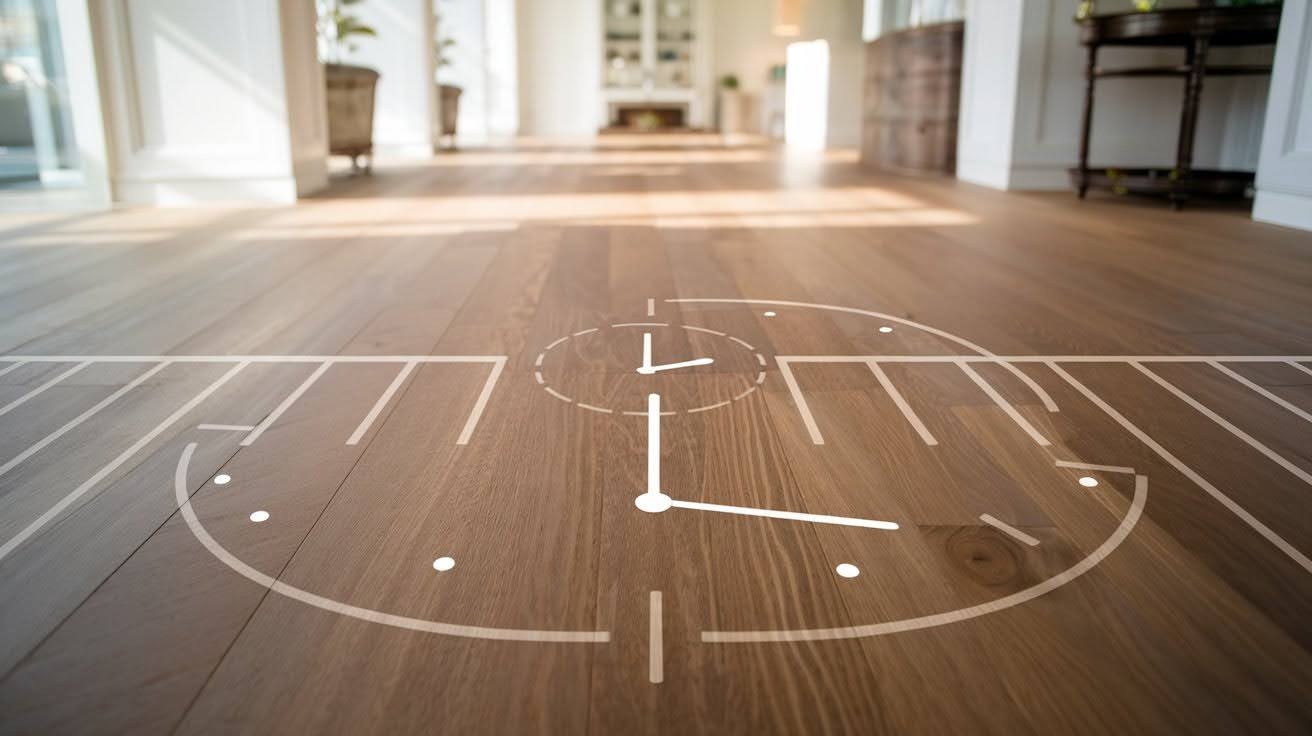
Here’s what I’ve seen in my years helping homeowners.
Budget engineered hardwood with thin wear layers: 10-25 years
Mid-grade with medium wear layers: 25-40 years
Premium with thick wear layers: 40-80 years
But these numbers depend on your specific situation.
Your lifestyle plays a huge role. Do you have kids? Pets? Do you host parties often? The quality of installation matters too. Poor installation can cut your floor’s lifespan in half.
Factors That Affect the Lifespan of Engineered Hardwood
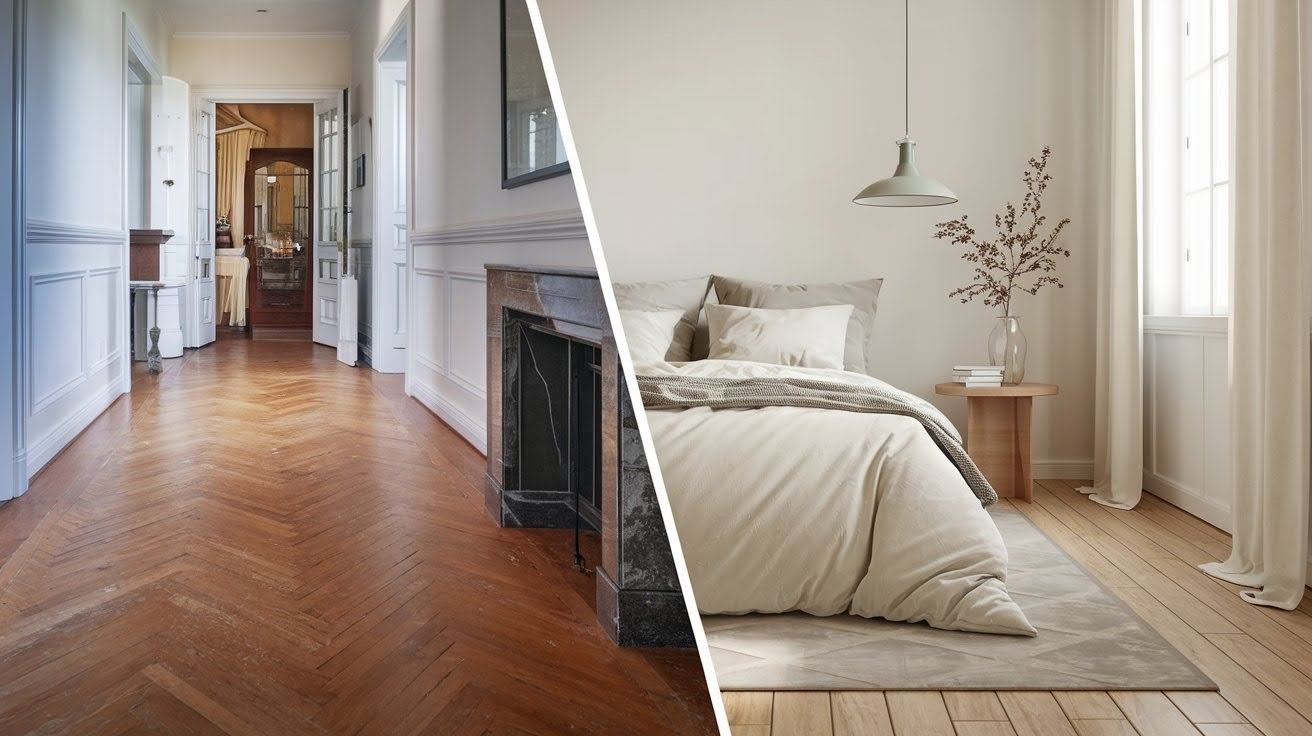
Wear Layer Thickness
This is the most important factor I tell homeowners about.
Thin wear layer (2mm or less): Limited lifespan and few refinishing options
Medium wear layer (3-4mm): Good balance of cost and durability
Thick wear layer (5mm+): Maximum lifespan and refinishing potential
Traffic Level
High-traffic areas wear out faster. Think about your entryway, kitchen, and hallways.
Low traffic areas like bedrooms can last decades longer than your living room.
Quality of Finish
The protective coating on top makes a huge difference.
Aluminum oxide finish: Most durable, lasts longest Polyurethane finish: Good protection, moderate lifespan Oil-based finish: Natural look but needs more maintenance
Installation Quality
Poor installation leads to gaps between boards, squeaking, and premature wear.
I always tell my clients to hire experienced installers. Trust me on this one.
Maintenance Habits
Regular cleaning extends your floor’s life dramatically.
Simple things like using door mats and cleaning spills quickly make a real difference.
Can Engineered Hardwood Be Refinished?
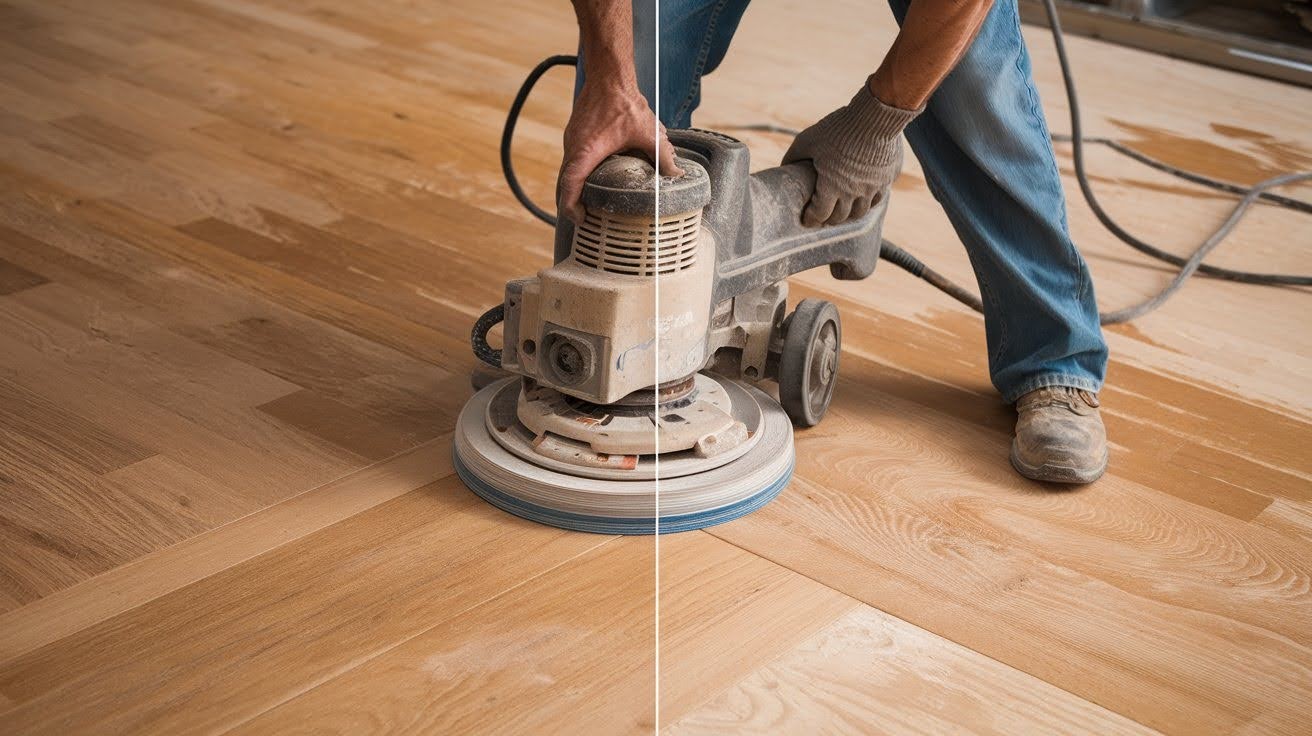
Yes, but only if the wear layer is thick enough. Generally, you need at least 3mm of wear layer thickness.
Here’s how many times you can refinish based on my experience:
- 2mm wear layer: 0-1 times
- 3-4mm wear layer: 1-2 times
- 5mm+ wear layer: 2-4 times
Each refinishing removes about 1mm of wood. That’s why thickness matters so much. Your floor can be refinished if you only have surface scratches, no deep gouges, and the boards are still solid.
You need replacement instead if you have deep scratches through to lower layers, water damage, or warping.
Engineered Hardwood vs. Other Flooring Lifespans
| Flooring Type | Average Lifespan | Can Be Refinished? | Works Best In |
| Engineered Hardwood | 20-80 years | Yes (limited) | Living areas, bedrooms |
| Solid Hardwood | 100+ years | Yes (many times) | Above-grade installation |
| Laminate | 15-25 years | No | Budget-friendly spaces |
| Vinyl Plank | 10-20 years | No | Moisture-prone areas |
Tips to Make Engineered Hardwood Last Longer
- Sweep or vacuum daily to remove dirt and debris
- Clean spills immediately before they soak in
- Use door mats at every entrance to prevent tracking
- Keep humidity levels between 30-50% year-round
- Remove shoes or use house slippers indoors
Signs Your Engineered Hardwood Needs Replacement
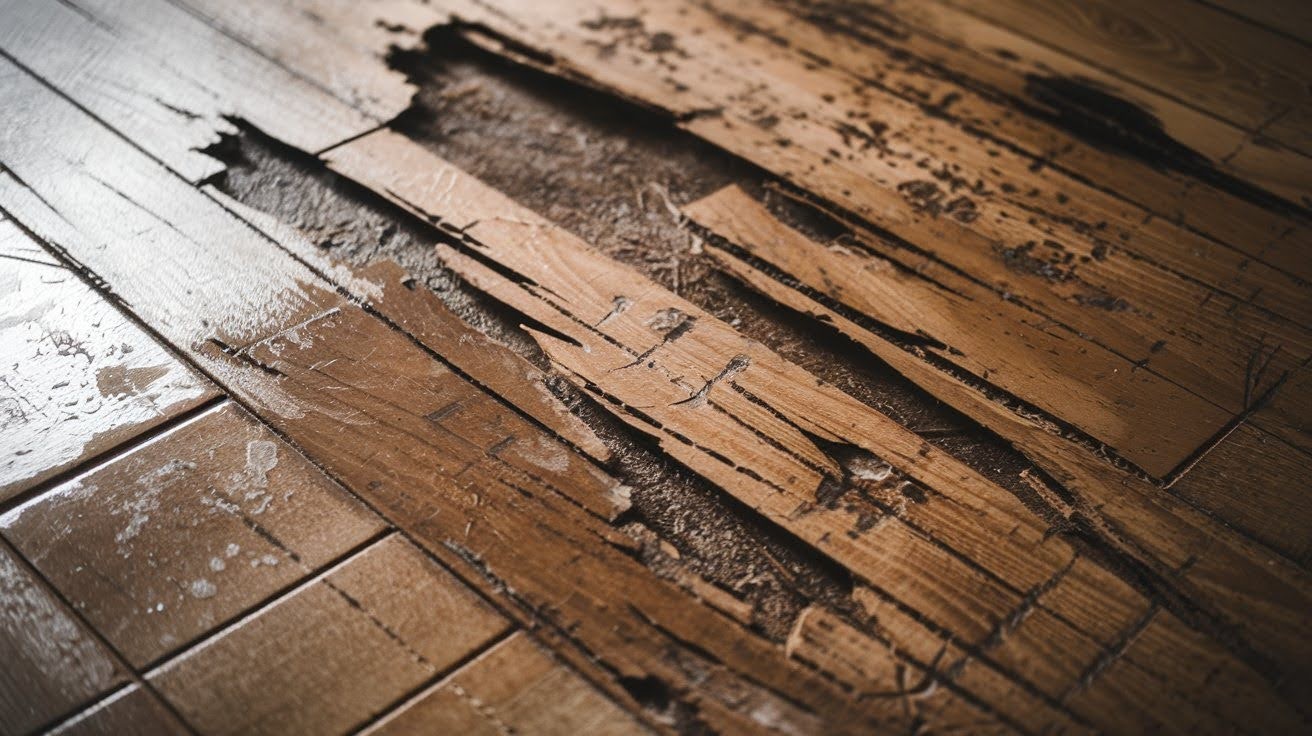
Watch for deep scratches that go through the wear layer, as these can’t be fixed with refinishing. Large gaps between boards that keep getting worse indicate structural problems.
Warping, cupping, or soft spots that feel spongy when you walk mean the flooring is failing. Water damage shows up as black staining, mold smells, or layers separating from each other.
If your floors have extensive staining that won’t come out or severe fading throughout the room, it’s time for replacement.
Final Thoughts
You now have the complete picture about engineered hardwood lifespan. The answer isn’t just one number. Quality matters more than price. Thick wear layers and proper installation determine if you get 20 years or 80 years from your floors.
I’ve seen too many homeowners regret choosing cheap options. Don’t make that mistake.
Here’s my advice: invest in engineered hardwood with at least 4mm wear layer. Hire experienced installers. Follow the maintenance tips I shared. Your floors should last decades, not years.
Ready to move forward? Get quotes from three reputable flooring contractors in your area. Ask specifically about wear layer thickness and installation warranties.
Still have questions? Drop a comment below. I’ll help you make the smartest choice for your home and budget.
Frequently Asked Questions
Can you install engineered hardwood in basements?
Yes, engineered hardwood works great in basements because it’s more stable than solid wood. Just make sure your basement has proper moisture control and stays between 30-50% humidity year-round.
What happens if I scratch my engineered hardwood deeply?
Deep scratches that go through the wear layer usually can’t be fixed with simple refinishing. You might need to replace individual boards or consider full floor replacement depending on the damage extent.
Is thicker engineered hardwood always better?
Thicker wear layers definitely last longer and offer more refinishing options. However, you’ll pay more upfront, so consider your budget and how long you plan to stay in your home.
How do I know if my engineered hardwood can be refinished?
Check your wear layer thickness first – you need at least 3mm for refinishing. Also look for surface-only damage without deep gouges, warping, or water damage throughout the floor.
Should I choose engineered hardwood over luxury vinyl plank?
Engineered hardwood lasts much longer (20-80 years vs 10-20 years) and can be refinished. Choose vinyl only if you need maximum water resistance or have a very tight budget.

